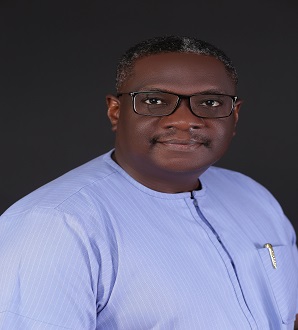The Importance of Human Capital to a Nation’s Economic Development
- August 23, 2021
- Posted by: dexnovaconsulting
- Category: Articles
It has become pertinent to showcase the role of the people as the key drivers of economies in the nations around the world. It should call for worry and concern when the critical role of human resources is being relegated to the background. Even where the development and deployment of artificial intelligence is on the rise, human beings still remains the driving force in the invention of this asset. It should further be pointed out that it is the people who manage and run the economies. The role of humans in the development of any nation cannot be underestimated. It is the fact based on substantial evidence that people are the greatest resources of any nation. In essence, human capital development is the sole driver for economic development in any nation. That should be the same focus in Nigeria as a nation in view of the contributions of the abundant human resources to the growth of any nation.
Human capital is the major source of economic growth as there is tangible increase through productivity and technological advancement. Most developing and developed countries realize the crucial role human capital development play in engendering overall development of their nations. To put it in clear terms, human capital development is the major source of economic growth in any nation.
It is also a basic imperative that both human capital development and economic development are closely linked. It is through the skills set and education of the human capital that the economy derives its growth. It is thus important to state that without human capital development, there can be no accelerated economic development. Human capital actually refers to the experiences, knowledge, education and skills set that workers contribute to the economy. All these provide value as the skill set automatically lead to increase in productivity.
Impliedly, this means that when a nation invests hugely on its workforce, economic development is guaranteed. To achieve this, there should be focus on formal education for the workforce, consistent training on the job as well as improved healthcare programme to cater for their well-being. It should also be a constant reminder to the government to develop a cohesive blue print that will not only enhance human capital development, but also economic development. This takes into cognizance the vital role human capital development plays in economic development. It should also be pointed out that any investment in human capital development yields maximum returns through its impact on the economy.
The Role of Government
Government needs to ensure that the skills sets of its workforce are expanded for optimal value creation. The same should apply to education, and as such government should support the educational attainments of workers as the drivers of the nation’s economic engine.
When this is done, the knowledge base of the workforce is expanded to boost economic growth. Ultimately, workers are provided higher remuneration and expectedly their skills deployment leads to economic growth.
The government should also provide health and social amenities that will impact on the performance of the workforce which will guarantee economic development.
It is a major obligation on government’s part to also provide incentives and ensure that people are adequately catered for to better their lot in view of their contribution to the nation’s Gross Domestic Product (GDP), which invariably leads to increase in Gross National Income (GNI) of the nation.
The Federal government can also engage experts to develop a robust curriculum that can facilitate government’s investment in the workforce. Since the resultant effects are huge on economic growth, government should embark on this to increase productivity and achieve growth in the economy.
A major government policy in this direction backed with legislation provides the tonic to enhance human capital development in Nigeria.
The Organized Private Sector (OPS) also has a crucial role to play by focusing on improving the skills of their workforce. This is through training and seminar that will enhance on-the-job performance which leads to productivity. A corporate organization can also support the education of staff by providing tuition fees for them to actualize their dream. This will definitely reflect on the company’s financial performance as well. Any investment in the employee ultimately leads to economic growth.
Way Forward
The Federal government should embark on initiatives to develop the nation’s human capital. There should be educational grants, provision of basic health facilities, competitiveness of the economy to enhance entrepreneurial creativity, vocational training etc. to improve the nation’s human capital.
It should now become a premium focus for government to embrace the knowledge economy and develop its people. Example abounds of nations whose mainstay income is driven by knowledge economy. Many of such nations are also intentional in encouraging their human resource to travel across the world to offer their skills, and thus providing another source of foreign earnings for the nation. It is human capital development that enhances knowledge economy and government should increase its funding in education to achieve this milestone. Nigeria should shift focus by developing, training and equipping her richly endowed human capital. For Nigeria to achieve sustainable economic growth, a paradigm shift to develop human capital is a major prerequisite.

